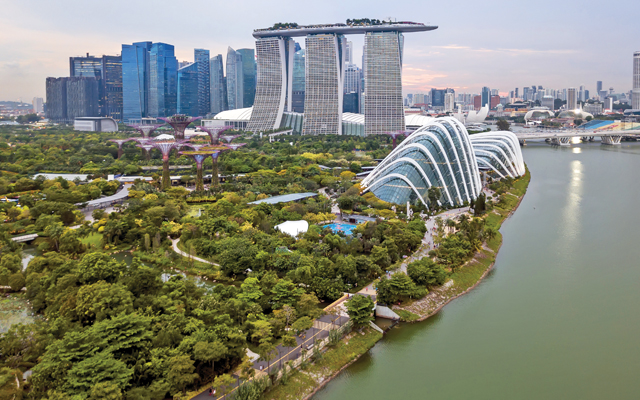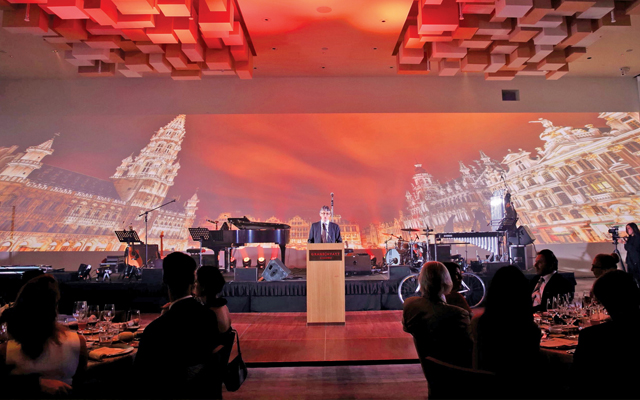Singapore aims to triple business event tourism receipts by 2040, exploring a new MICE Hub and event incubation amid global shifts and cost concerns
The Singapore Tourism Board (STB) has set an ambitious goal to triple the tourism receipts generated by business events by 2040, aiming for the sector to contribute around 10 per cent of its targeted S$47 billion (US$36.5 billion) to S$50 billion in overall tourism revenue.
To achieve this triple-fold goal, several initiatives to build Singapore’s future pipeline of business events are underway. This includes exploring the feasibility of a MICE Hub in the downtown area, and launching a new Business Events Inspired pilot programme.

When asked about the difference between the MICE Hub, and venues such as Marina Bay Sands and Suntec City Convention Centre which already exist alongside lifestyle offerings, Ong Huey Hong, assistant chief executive, industry development group, STB, indicated that Singapore “needs to continue to look at expanding its MICE capacity”.
“We want to triple our MICE contribution to tourism receipts, so we definitely need to have the capacity. We have observed that MICE travellers do not just visit Singapore for a business event. They are also interested in bleisure offerings, such as F&B and lifestyle experiences, hence we are looking into the development of this MICE Hub,” added Ong.
Together with Singapore Association of Convention & Exhibition Organisers & Suppliers, STB will also be introducing a new Business Events Inspired pilot programme to catalyse and grow the pipeline of business events in Singapore. This will be officially launched at the Singapore MICE Forum this month (July), Ong told TTGmice.

Under this pilot programme, event organisers will have access to mentorship, events consultancy services, and seed funding to develop quality events, with the goal of incubating them into impactful international events.
Edward Koh, STB’s executive director, conventions, meetings & incentive travel, told TTGmice at IMEX Frankfurt 2025, that Singapore’s events pipeline is “very busy” up till 2032.
This year, major business events in Singapore include the inaugural World Sleep Congress 2025; LSI Asia 2025, the first edition of this medtech conference in Asia; the World Robot Olympiad International Finals; and the 30th edition of SEMICON South-east Asia, with over 18,000 delegates expected.
Looking ahead, the city-state is set to host the Herbalife Extravaganza 2026 with an anticipated 25,000 arrivals; while Sibos 2027, a major banking and finance conference, is estimated to attract 7,000 delegates.
Several new tradeshows will also be launched next year. Among these is the Passenger Terminal Expo Asia 2026, marking its debut in the Asia-Pacific region and expected to draw 3,500 aviation leaders. German trade fair organiser Messe Berlin, with its Asia Pacific Headquarters in Singapore, will launch Smart Health Asia 2026, a new event aimed at health and tech executives focused on digital innovation in healthcare. Additionally, UK-based event organiser Hyve is bringing its first event to Singapore with Breakbulk Asia 2026, the world’s largest gathering for the project cargo and breakbulk industry, anticipating 3,500 attendees.
When asked about how Singapore’s business events industry is shaping up given global uncertainties, Koh stated: “Singapore’s image is still very strong. Our image is an image of trust, which is a currency in short supply these days, and appreciating. We’re also not changing our brand – our brand of connectivity, accessibility, and innovation – and are trying to deepen it, to provide planners with assurance.”
Wendy Teo, director of sales & marketing, Grand Hyatt Singapore, noted: “Singapore’s strengths as a MICE destination is that it is safe, predictable, and has a stable economy. Our challenge would probably be the higher costs of holding an event here. The reality is when an event planner chooses a different hotel or destination, it always boils down to costs.”
“Singapore remains one of the most desirable MICE destinations, but cost sensitivity is real – especially with the strong Singapore dollar. Organisers are increasingly comparing regional alternatives that offer compelling value,” Piotr Kupiec, general manager for Novotel and Mercure Singapore on Stevens, agreed.
But despite prince sensitivities, Kupiec highlighted STB’s Business Event in Singapore (BEiS) Build Foundation incentive scheme, which helps local stakeholders defray costs when pursuing business events leads.
“While discussions with STB are still exploratory, we are proactively looking at how we can align with the BEiS Build Foundation scheme, particularly in the areas of digitalisation, experiential fam trips, and high-impact programming for emerging industries,” he shared.
Improving Orchard Road’s visibility is a priority for Teo. She explained: “The Marina Bay area usually gets more attention due to the large-scale events it regularly hosts, thanks to the Bay Precinct Strategy. On our end, we need to change the perception that Orchard Road is just for shopping. Many hotels along Orchard Road also offer great meeting facilities, and the best part is that delegates can go out for a good meal, or some retail therapy to wind down.”
Overall, Teo remains “cautiously optimistic” about the hotel’s business events prospects, given that it only reopened a year ago after an extensive refurbishment. While many loyal clients have returned, global uncertainties continue to prompt a “wait-and-see approach”.
For Kupiec, demand remains strong among sectors like FinTech, GreenTech, and Health & Wellness for the rest of 2025.
“If we are losing events in one direction, I would be very concerned. But the industry is very dynamic, and we win some, we lose some. Singapore continues to win a lot of events because (planners) see the value (in holding an event here),” Koh concluded.





















